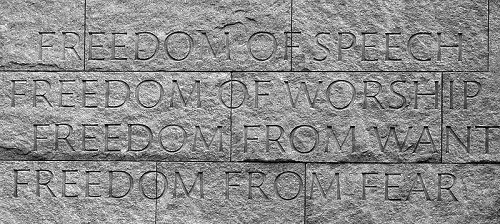
January 21, 2014; Washington Post
The Washington Post’s Chris Cillizza suggests that the Citizens United decision of the U.S. Supreme Court—four years old as of yesterday—has changed politics in six significant ways: a huge surge in “independent expenditures” in 2012, three times as much as the outside spending in the 2008 and 2010 electoral cycles; outside group spending in the 2014 electoral cycle three times higher than it was at this time in 2010; outside spending (other than party committees) more than twice as much for conservatives than liberals in the 2012 elections; Republican TV ads for senate candidates in 2010 much higher than the number of Democratic ads, a reversal of the Democratic TV ad advantage in 2006; outside spending in elections without donor disclosure topping $300 million in 2012, compared to what looks like around $130 million in 2010; and a rapid decline in full disclosure from over 95 percent in 2004 to somewhat over 60 percent in 2008 to only about 40 percent in 2012.
Sign up for our free newsletters
Subscribe to NPQ's newsletters to have our top stories delivered directly to your inbox.
By signing up, you agree to our privacy policy and terms of use, and to receive messages from NPQ and our partners.
The challenge for nonprofits is particularly acute because the favored instruments for these anonymous donations are 501(c)(4) social welfare organizations, which then make donations to Super PACs. The limited mechanisms for disclosure of independent spending directly focused on the election or defeat of federal candidates are even weaker in some states’ regulations covering state and local elections, such as Minnesota’s.
The Common Cause take on Citizens United may be the most mainstream criticism of this Supreme Court decision, but there are limits. “It is not a crime to be wealthy. It is not a crime to donate money to a candidate, political action committee or organization that works on issues that are important to you,” said Jeremy Schroeder, the executive director of Common Cause Minnesota. “However, we should not be willing to allow a handful of special interests to donate unlimited amounts of money to influence elections. Dark money should not control the power in our government.”
But the parameters for reining in independent spending through 501(c)(4)s are sometimes difficult to define precisely. Given the endemic paralysis in Congress, groups like state chapters of Common Cause may have a huge role to play in reining in the excesses of dark money, because the action will be at the state level. A Vermont legislative conference committee is working through the differences in House and Senate bills that would increase the regulations covering campaign donations in the Green Mountain state. New York Governor Andrew Cuomo’s upcoming budget reportedly contains proposals for new ethics law and public financing for state elections. In contrast, North Carolina is weakening its standards for disclosure of political campaign contributions.
If anything, the battleground for nonprofits fighting for small “d” democracy is going to be occurring at the state level. It is a battle that 501(c)(3) public charities should join, even though the instruments to be controlled and made more transparent are 501(c)(4)s and Super PACs.—Rick Cohen












